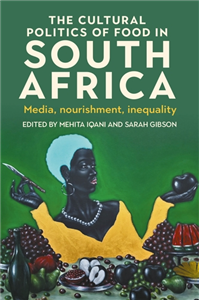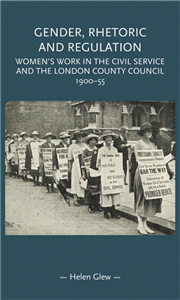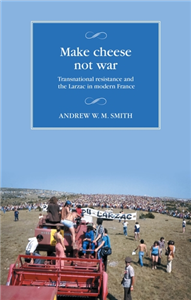Your Search Results
-
Promoted Content
-
Promoted Content
-
 Trusted Partner
Business, Economics & LawSeptember 2020
Trusted Partner
Business, Economics & LawSeptember 2020Tourism and Gender-based Violence
Challenging Inequalities
by Paola Vizcaino-Suárez, Heather Jeffrey, Claudia Eger
Gender-based violence (GBV) in travel and tourism is embedded within wider social structures of gender inequalities and discrimination. Even though it is pertinent to study GBV in all its forms, this book focuses on the multiple and interconnected manifestations of violence that women/girls encounter in tourism consumption and production (physical, sexual, emotional or socio-economic), while seeking to open the debate on violence against sexual minorities (LGBT) and discussing men/boys as victims and perpetrators of GBV. By engaging in a critical exploration of the theoretical landscape of GBV and case studies on GBV and sexual harassment, the book adopts a multidisciplinary perspective drawing on feminist, intersectional and post-colonial frameworks, bringing together contributions from academics and practitioners across the globe.
-
 Trusted Partner
April 2024
Trusted Partner
April 2024Climate Change and Global Health
Primary, Secondary and Tertiary Effects
by Colin Butler, Kerryn Higgs, Ågot Aakra, Khaled Abass, Robyn Alders, Kofi Amegah, Janetrix Hellen Amuguni, Gulrez Shah Azhar, Katherine Barraclough, Barbara Berner, Alex Blum, Justin Borevitz, Menno Bouma, Devin C. Bowles, Mark Braidwood, Anne Lise Brantsæter, Cyril Caminade, Katrina Charles, Fiona Charlson, Moumita Sett Chatterjee, Matthew Chersich, Rebecca Colvin, Namukolo Covic, Christopher B Daniels, Richard Dennis, Cybele Dey, Hubert Dirven, Yuming Guo, Tari Haahtela, Ivan C Hanigan, Andrew Harmer, Budi Haryanto, Kerryn Higgs, Susanne Hyllestad, Christine Instanes, Ruth Irwin, Ollie Jay, Solveig Jore, Ke Ju, Tord Kjellstrom, Marit Låg, Jason KW Lee, Shanshan Li, Irakli Loladze, Rosemary A. McFarlane, Martin McKee, Helle Margrete Meltzer, Glen Mola, Andy Morse, Juliet Nabyonga-Orem, Nicholas H. Ogden, Johan Øvrevik, Rebecca Patrick, Rezanur Rahaman, Delia Randolph, Shilpa Rao, Arja Rautio, Mary Robinson, Tilman Ruff, Subhashis Sahu, Jonathan Samet, Photini Sinnis, Julie P Smith, Jes
There is increasing understanding that climate change will have profound, mostly harmful effects, on human health. In this authoritative book, international experts examine long-recognized areas of health concern for populations vulnerable to climate change, describing effects that are both direct, such as heat waves, and indirect, such as via vector-borne diseases. Set in a broad international, economic, political and environmental context, this unique book expands these issues by reviving and championing a third ('tertiary') category of longer term impacts on global health: famine, population dislocation, conflict and collapse. This edition has an expanded foundation, with new chapters discussing nuclear war, population and limits to growth, among others. This lively yet scholarly resource explores all these issues, finishing with a practical discussion of avenues to reform. As Mary Robinson, former UN High Commissioner for Human Rights, states in the foreword: 'Climate change interacts with many undesirable aspects of human behaviour, including inequality, racism and other manifestations of injustice. Climate change policies, as practised by most countries in the global North, not only interact with these long-standing forms of injustice, but exemplify a new form, of startling magnitude.' The book is dedicated to Tony McMichael, Will Steffen and Maurice King. This book will be invaluable for students, post-graduates, researchers and policy-makers in public health, climate change and medicine.
-
 Trusted Partner
Humanities & Social SciencesMay 2021
Trusted Partner
Humanities & Social SciencesMay 2021Critical race theory and inequality in the labour market
by Ebun Joseph
-
 Trusted Partner
Humanities & Social SciencesMarch 2026
Trusted Partner
Humanities & Social SciencesMarch 2026The cultural politics of food in South Africa
Media, nourishment, inequality
by Mehita Iqani, Sarah Gibson
Food is both a material system of nourishment, necessary for human survival, and a communicative system that signifies multiple meanings across human cultures. This book explores the cultural politics of food in the South African context, bringing together a range of disciplinary perspectives on the links between media, nourishment, and inequality. The chapters all highlight the multiplicity of meanings that food has in South African society. These include historical perspectives on the impact of colonialism, migration and apartheid had on food and foodways in South Africa; sociological interventions on food and society; aesthetic practices in relation to food; and mediated food cultures in South Africa. Taken together, the book critically explores the multiple ways in which food is never just food, and always linked to complex and shifting modalities of meaning and knowledge in the South African context.
-
 Trusted Partner
Trusted Partner
-
 Trusted Partner
The ArtsJanuary 2019
Trusted Partner
The ArtsJanuary 2019The British working class in postwar film
by Philip Gillett
An incidental pleasure of watching a film is what it tells us about the society in which it is made. Using a sociological model, The British working class in postwar film looks at how working-class people were portrayed in British feature films in the decade after the Second World War. Though some of the films examined are well known, others have been forgotten and deserve reassessment. Original statistical data is used to assess the popularity of the films with audiences. With its interdisciplinary approach and the avoidance of jargon, this book seeks to broaden the approach to film studies. Students of media and cultural studies are introduced to the skills of other disciplines, while sociologists and historians are encouraged to consider the value of film evidence in their own fields. This work should appeal to all readers interested in social history and in how cinema and society works.
-
 Trusted Partner
Humanities & Social SciencesJanuary 2026
Trusted Partner
Humanities & Social SciencesJanuary 2026The urban life of workers in post-Soviet Russia
by Alexandrina Vanke
-
 Trusted Partner
Trusted Partner
-
 Trusted Partner
Social & cultural historyJanuary 2016
Trusted Partner
Social & cultural historyJanuary 2016Gender, rhetoric and regulation
Women's work in the Civil Service and the London County Council, 1900–55
by Helen Glew
The Civil Service and the London County Council employed tens of thousands of women in Britain in the early twentieth century. As public employers these institutions influenced both each other and private organisations, thereby serving as a barometer or benchmark for the conditions of women's white-collar employment. Drawing on a wide range of archival sources - including policy documents, trade union records, women's movement campaign literature and employees' personal testimony - this is the first book-length study of women's public service employment in this period. It examines three aspects of their working lives - inequality of pay, the marriage bar and inequality of opportunity - and demonstrates how far wider cultural assumptions about womanhood shaped policies towards women's employment and experiences. Scholars and students with interests in gender, British social and cultural history and labour history will find this an invaluable text.
-
 Trusted Partner
Humanities & Social SciencesOctober 2023
Trusted Partner
Humanities & Social SciencesOctober 2023Towards a just Europe
A theory of distributive justice for the European Union
by João Labareda
This highly original book constitutes one of the first attempts to examine the problem of distributive justice in the European Union in a systematic manner. João Labareda argues that the set of shared political institutions at EU level, including the European Parliament and the Court of Justice of the EU, generate democratic duties of redistribution among EU citizens. Furthermore, the economic structure of the EU, comprising a common market, a common currency and a free-movement area, triggers duties of reciprocity among member states. The responsibilities to fulfil these duties, Labareda argues, should be shared by the local, national and supranational levels of government. Not only should the EU act as a safety net to the national welfare systems, applying the principle of subsidiarity, but common market and Eurozone regulations should balance their efficiency targets with fair cooperation terms. The concrete policy proposals presented in this book include a threshold of basic goods for all EU citizens, an EU labour code, a minimum EU corporate tax rate and an EU fund for competitiveness. Labarada argues that his proposals match the political culture of the member states, are economically feasible, can be translated into functioning institutions and policies and are consistent with the limited degree of social solidarity in Europe. This book is a major contribution to the understanding of what a just Europe would look like and what it might take to get us there. This book is relevant to United Nations Sustainable Development Goal 10, Reduced inequalities
-
 Trusted Partner
Humanities & Social SciencesApril 2016
Trusted Partner
Humanities & Social SciencesApril 2016University engagement and environmental sustainability
by Michael Osborne, Patricia Inman, Diana Robinson
Universities have a key role to play in contributing to environmental development and combating climate change. The chapters within this volume detail the challenges faced by higher education institutions in considering environmental sustainability, and provide both a broad view of university engagement and a detailed examination of various projects. As part of this series in association with the Place and Social Capital and Learning (PASCAL) International Observatory, the three key PASCAL themes of place management, lifelong learning and the development of social capital are considered throughout the book. While universities have historically generated knowledge outside of specific local contexts, this book argues that it is particularly important for them to engage with the local community and to consider diverse perspectives and assets when looking at issues within an ecological context. The chapters in this volume provide new perspectives and frames of reference for transforming universities by engaging in the development of resilient communities.
-
 Trusted Partner
Trusted Partner
-
 Trusted Partner
Limnology (freshwater)November 2001
Trusted Partner
Limnology (freshwater)November 2001Waste Composting for Urban and Peri-Urban Agriculture
Closing the Rural-Urban Nutrient Cycle in Sub-Saharan Africa
by Edited by Pay Drechsel, Dagmar Kunze
Rapid urbanization has created a major challenge with regard to waste management and environmental protection. However, the problem can be ameliorated by turning organic waste into compost for use as an agricultural fertilizer in peri-urban areas. This is especially significant in less developed countries, where food security is also a key issue. This book addresses these subjects and is based on papers presented at a workshop held in Ghana by the International Board for Soil Research and Management (IBSRAM, now part of the International Water Management Institute) and FAO. Special reference is given to Sub-Saharan Africa, with acknowledgement to experiences from other parts of the world. Contributing authors are from several European, as well as African, countries.
-
 Trusted Partner
Humanities & Social SciencesApril 2025
Trusted Partner
Humanities & Social SciencesApril 2025The return of the housewife
Why women are still cleaning up
by Emma Casey
An illuminating look at the world of cleanfluencers that asks why the burden of housework still falls on women. Housework is good for you. Housework sparks joy. Housework is beautiful. Housework is glamorous. Housework is key to a happy family. Housework shows that you care. Housework is women's work. Social media is flooded with images of the perfect home. TikTok and Instagram 'cleanfluencers' produce endless photos and videos of women cleaning, tidying and putting things right. Figures such as Marie Kondo and Mrs Hinch have placed housework, with its promise of a life of love and contentment, at the centre of self-care and positive thinking. And yet housework remains one of the world's most unequal institutions. Women, especially poorer women and women of colour, do most low-paid and unpaid domestic labour. In The return of the housewife, Emma Casey asks why these inequalities matter and why they persist after a century of dramatic advances in women's rights. She offers a powerful call to challenge the prevailing myths around housework and the 'naturally competent' woman homemaker.
-
 Trusted Partner
Trusted Partner
-
 Trusted Partner
Trusted Partner
-
 Trusted Partner
Agriculture & related industriesNovember 2007
Trusted Partner
Agriculture & related industriesNovember 2007Community-Based Water Law and Water Resource Management Reform in Developing Countries
by B van Koppen, Mark Giordano. Edited by J Butterworth.
The lack of sufficient access to clean water is a common problem faced by communities, efforts to alleviate poverty and gender inequality and improve economic growth in developing countries. While reforms have been implemented to manage water resources, these have taken little notice of how people use and manage their water and have had limited effect at the ground level. On the other hand, regulations developed within communities are livelihood-oriented and provide incentives for collective action but they can also be hierarchal, enforcing power and gender inequalities. This book shows how bringing together the strengths of community-based laws rooted in user participation and the formalized legal systems of the public sector, water management regimes will be more able to reach their goals.
-
 Trusted Partner
Humanities & Social SciencesFebruary 2026
Trusted Partner
Humanities & Social SciencesFebruary 2026Make cheese not war
Transnational resistance and the Larzac in modern France
by Andrew W. M. Smith
In 1971, the French government announced a massive extension of its military base on the Larzac plateau in southern France. Land was to be expropriated from 107 farms around the small town of La Cavalerie. Limited resistance was expected, but what happened next exceeded all expectations. Local sheep farmers set up protest camps and occupied the land. They soon attracted an astonishing level of support, pioneering a form of regional radicalism with global implications. Drawing out the international dimensions of the protest, Make cheese not war explores a transnational resistance movement in the 1970s that challenged dominant visions of modernity and became a wellspring of radical alternatives. Exploring previously unconsulted archives in France and elsewhere, the book offers an in-depth analysis of the decade-long peasant movement and its aftermath. Repositioning the Larzac struggle within a wider network of French and international solidarities, from the US to the UK, Germany, Burkina Faso, New Caledonia and Japan, the book retraces political networks of pacifist activism, as well as environmental movements and anti-nuclear protest. It shows how this French peasant campaign became both a platform and a model for popular engagement.





















